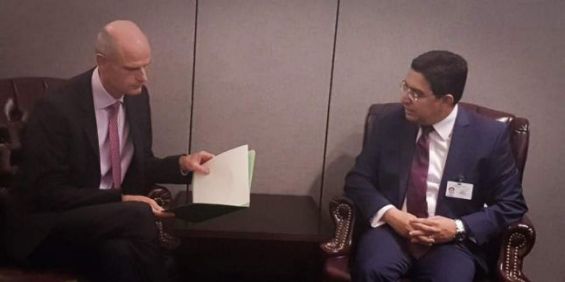Tensions between Morocco and Netherlands have recently taken a different turn after Dutch media revealed that Rabat, contrary to previous reports, have managed to reach an agreement with The Hague regarding the repatriation of irregular Moroccan migrants in the Netherlands.
Monday, Dutch public broadcaster NOS reported that in April 2018, Foreign Dutch Minister Stef Blok managed to reach an agreement with Morocco for the repatriation of 52 irregular migrants. The Netherlands, however, failed to meet the terms of the agreement, NOS revealed in a TV program called «Nieuwsuur».
In fact, it turned out that the Dutch Justice Ministry has lost track of the 52 Moroccan nationals it planned to repatriate to Morocco, based on the agreement signed in 2018 by Blok. Quoting a Justice Ministry inquiry, NOS reported that the country has been able to send back to Morocco only one irregular migrant months after Rabat sent its Justice Ministry a list with sixty names.
Frustrating news
And as surprising as it may seem, the agreement reached in 2018 went unnoticed and did not make to the news. Meanwhile, Morocco gained the reputation of a «poorly cooperating» country in the Netherlands.
The recent revelations were «surprising» to Dutch former attaché at the Netherlands’ embassy in Rabat Jan Hoogland, who stressed that «Morocco was often blamed for not wanting to receive Moroccan migrants» in the Netherlands.
«It turned out that there was an agreement and Morocco indeed cooperated and was prepared to take these nationals back», he explained.
To the retired Professor, one of the reasons behind the current situation is the fact that «these migrants were not locked up in reception centers». «They were sheltered but free to go», Hoogland told Yabiladi.
But this situation, according to Hoogland, could help «the Dutch public opinion and politicians understand now that Morocco is willing to cooperate». «The Moroccan side must feel disappointed or betrayed. Morocco was indeed cooperating and the Netherlands said it was not», he argued, adding that losing track of the aforementioned migrants can also be blamed on «lack of cooperation» between the Dutch Justice and Foreign Ministries.
Losing track of the 52 Moroccan migrants can only be added to the other factors that add on the diplomatic tensions between Morocco and the Netherlands. The repatriation of Moroccan-Dutch convict Said Chaou is also part of the crisis.




 chargement...
chargement...












